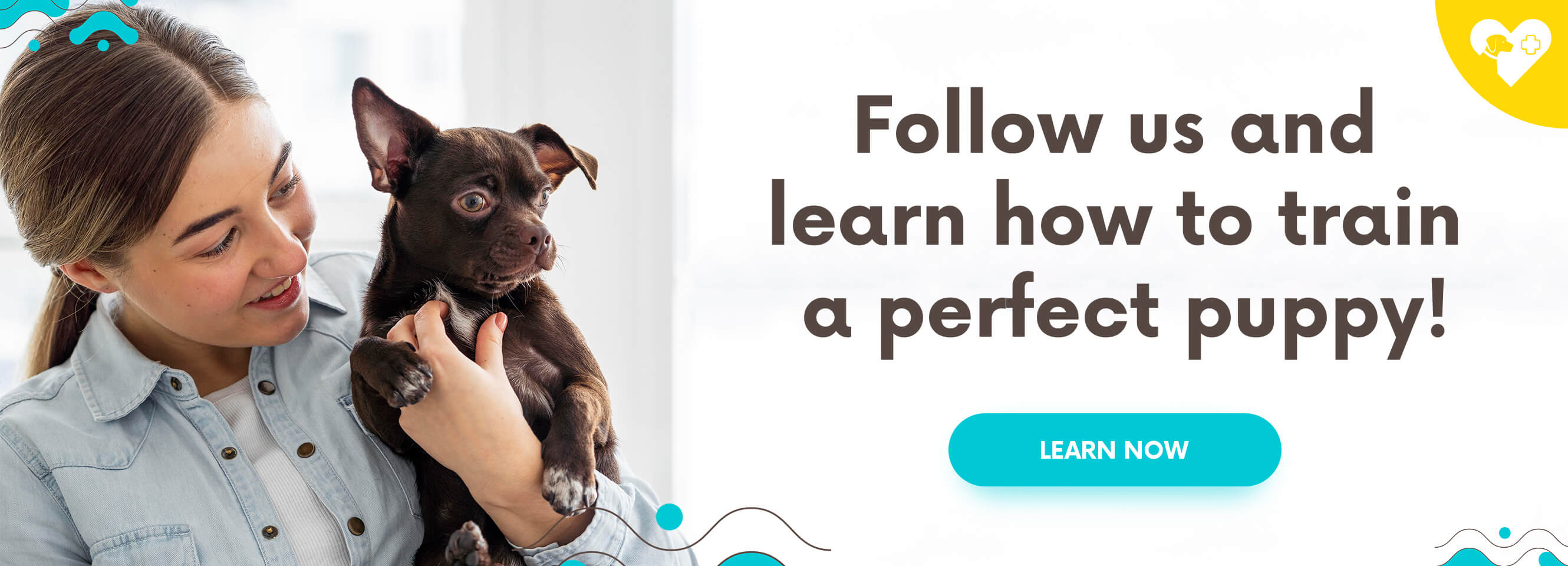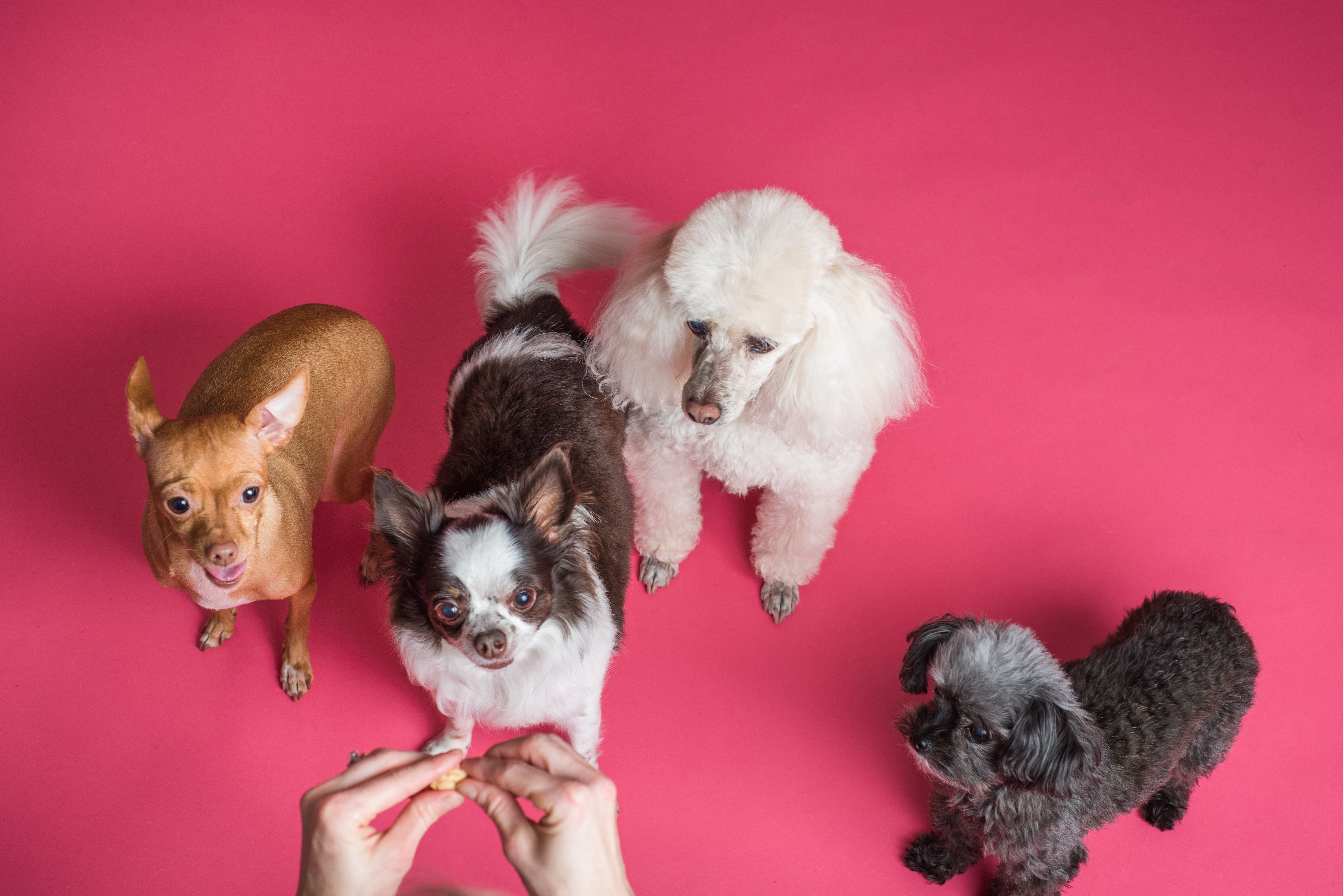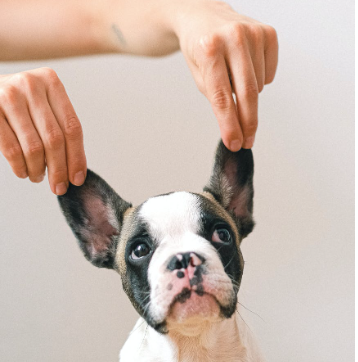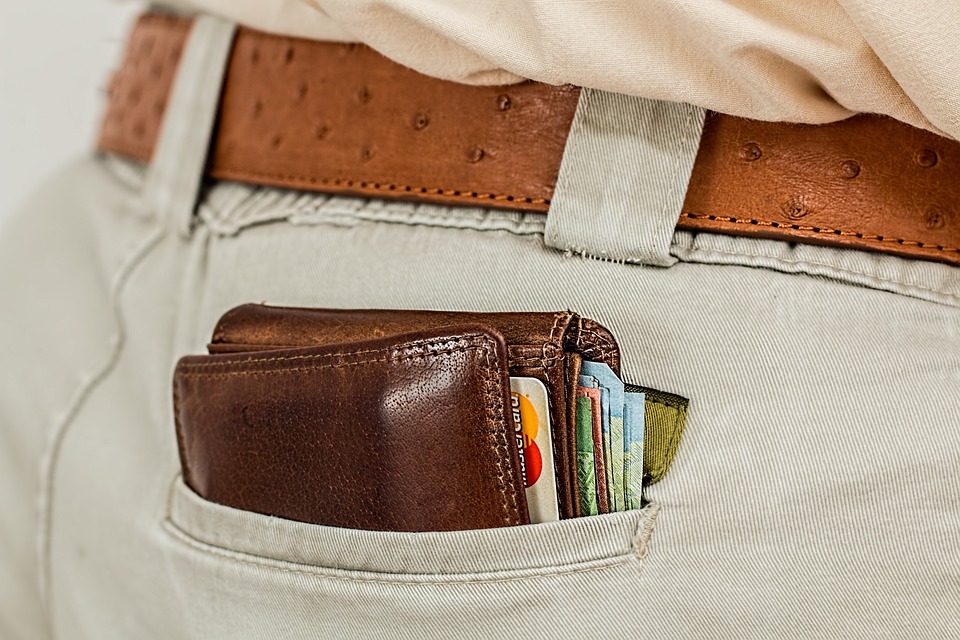- Puppy Raising Through a Non-profit Organization
- Raise a Service Dog Yourself
- Important Things You Should Consider Prior to Raising a Service Dog
- Essential Tasks That a Dog Raiser Is Expected to Fulfill
- What Happens if the Puppy Does Not Graduate
- Essential Things You Should Know About Raising a Dog That Will Be Trained to Become a Service Dog
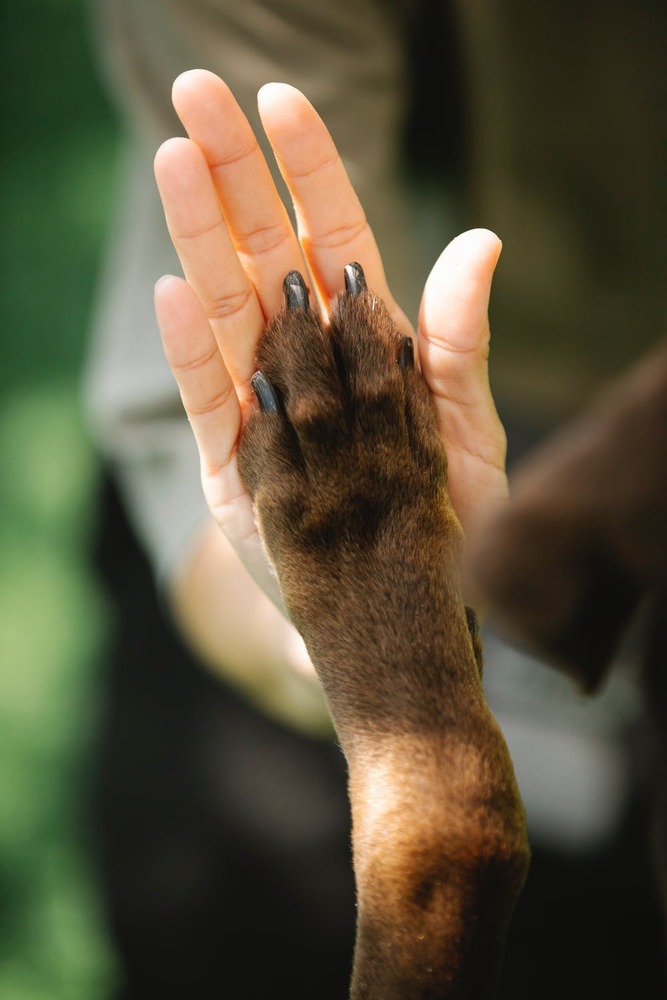
Service dogs are loyal paw friends, providing invaluable assistance to people with disabilities, helping them deal with daily challenges, and re-gain their confidence. Having a service dog is а two-way process. On the one hand, service dogs provide great help by fulfilling specific tasks related to their handler’s disability. On the other hand, their handler should be able to take care of them properly, as well as invest time, and commitment.
There are several options available for people with a physical and/or mental impairment to get a service dog- through a service dog training organization (for-profit or non-profit) or raise and train a service dog themselves. In today’s article, we will discuss the process of raising a service dog, whether through an organization or yourself, and how you can do that.

Puppy Raising Through a Non-profit Organization
Many non-profit organizations rely on volunteers to raise and socialize puppies the first few months or a year of their lives prior to continuing with advanced training at their facilities. Service dog raisers are expected to provide pups with love, care, proper socialization, and basic obedience prior to forwarding them to the organization for further advanced training that will prepare them to perform specific tasks. Organizations run different policies in regard to puppy evaluation once the puppy is delivered to the puppy raiser- some of them provide an assessment at each step of the training process while others evaluate the dog at the end of his/her stay with their raiser.
If you would like to support a non-profit organization in its activity to provide disabled people with trained service dogs, you can become a puppy raiser. The first thing you need to do is to contact the organization and gather information about the requirements that puppy raisers have to meet. Then you may need to fill out and submit your application. If your application is approved, you may need to participate in training courses prior to meeting your pup, based on the organization’s requirements. Support via phone, email and/or in-person may be provided as well. The pup is likely to be 2-3 months old when it has been forwarded to you. You may be able to pick up the puppy from the organization’s facility/headquarters or from a certain, prearranged, location where puppy raisers should gather to meet their pups. You are not likely to know the name of the puppy prior to meeting him/her. Once you get the puppy, you will be responsible for his/her proper training and socialization until he/she gets approximately 1 year old and be forwarded to the organization. Providing the pup with a safe and loving environment during the first few months of its life will be your responsibility.
Raise a Service Dog Yourself
US citizens are allowed to train their dogs as service animals themselves. According to the Americans with Disabilities Act (ADA) service dogs in the US are not required to be professionally trained:
“Q5. Does the ADA require service animals to be professionally trained?
A. No. People with disabilities have the right to train the dog themselves and are not required to use a professional service dog training program.”
You can get a puppy that will be raised and trained to become a service dog, or you can train the dog you already have. Puppies should be at the minimum age of 8 weeks for training to start, the age of 6 months is deemed a minimum age for dogs to be recognized as service dogs, and the age of 10 years is considered a retirement age for service dogs. You are not required to certify your dog or to put any identification service dog gear on them. However, any documentation as proof of training may help you verify his/her legitimacy while in public. You can train the dog yourself and be their handler or another person, i.e. a family member, could be the dog handler, and you can be the dog user, who benefits from the performed tasks. Raising a service dog requires a lot of time, patience, commitment and money- for veterinarian checks, quality food, dog supplies.
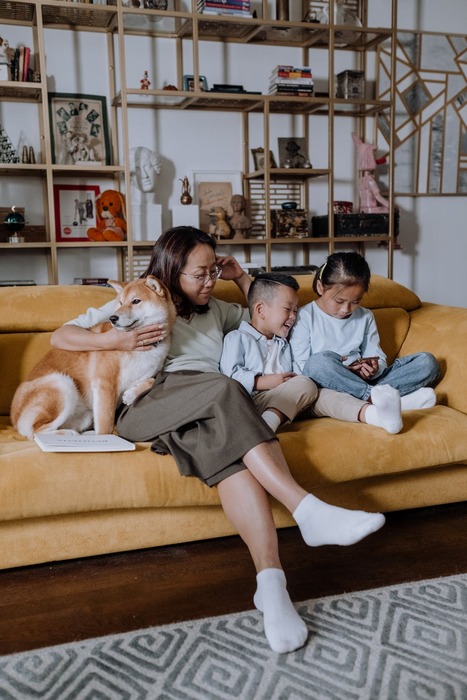
Important Things You Should Consider Prior to Raising a Service Dog
Whether as a volunteer through a non-profit organization, or yourself, the process of raising a dog to become a service dog comes with many responsibilities and you may need to answer a few questions before making the next step.
Time
Do you have the time needed to become a service dog raiser? If you work a lot, travel a lot, or otherwise do not spend much time home, you are not likely to have the time needed to become a service dog raiser. Some organizations may require puppy raisers to attend classes not only prior to meeting the pup, but after that as well, and bring him/her to on-site training sessions. You should be able to adapt your daily routine to the cause of raising a service dog.
Commitment
Raising a dog, especially if he/she will be trained to become a service dog is an activity requiring commitment. You should be fully dedicated to the process and not give up when even slightly difficulties arise.
Can you Rely on Your Family Members?
Involving your family members in the process of raising and training a puppy, can be very beneficial. You can lean on them if you are unable to conduct training at a certain time during the day; if you want to ensure that training sessions have been repeated enough and your pup has mastered the commands; if you want to socialize the pup, involving more people- you can start with your relatives and close friends and gradually meet your pup with unfamiliar people. If family members will be a part of the training/raising process, you should openly discuss what approach you all will have towards the pup and how its daily routine will look. The approach should be unitary in order for training to succeed.
Do You Have Children?
Having a small kid could be beneficial for puppy raising and training, as the pup will get used to be around children and socialize better. However, there are a few things you should take into account- some breeds (the small ones with more fragile bones) can get easily injured and you will need to supervise all interactions between the dog and your children. Also, some breeds are not very tolerant towards rough playing and handling, which is common for small children. Hence, you need to clear the question- Can raising a small child and a pup at the same time go hand in hand?
Do You Have Other Pets?
Similar to the point above, having other pets could contribute to the socialization of the pup, but also make the process of raising it more difficult. The organization that you want to volunteer in, may set limitations for the number of pets allowed in your household- some organizations may not allow you to raise a pup, that will be trained to become a service dog together with other animals; others may not allow you to raise other pets at an age less than 1 year old.
Will You Be Able to Separate From the Dog?
You should realize from the beginning that at some point in the future you will have to forward the dog to the organization for more advanced training. After the advanced training ends, the pup will be forwarded to a disabled person, to assist them with daily challenges. It is crucial for you to realize the purpose of raising a pup who will become a service dog- you will need to overcome the strong attachment that you have developed to the dog, in order to let him/her fulfill his/her purpose. Be honest with yourself and make a decision only after you are completely confident that you can deal with the process of separation.
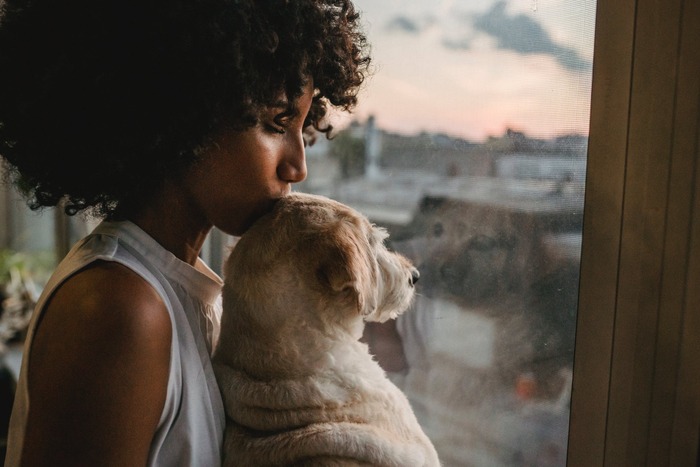
Essential Tasks That a Dog Raiser Is Expected to Fulfill
Safe Environment
Creating a safe environment for the dog is maybe the most important task that you as a dog raiser will need to fulfill. Creating a safe environment means a lot of things- remove any small objects from the floor, that can be mistaken for treats, and your pup may want to eat; remove any cables or electrical items that the pup may want to chew; put a fence in your backyard, to ensure that the pup will not run out of the house and get exposed to dangerous situations on the street; lock any food that may be toxic for the pup (You can read more about human food, that can be dangerous for your dog in our article: “11 Healthy Human Food Can Harm or Kill Your Dog”; remove any houseplants that may be poisonous for dogs...etc. In general, you should ensure that the pup will be raised in a secure environment and potentially dangerous factors will be eliminated.
Crate Training
Since you are likely to have been given a pup, that does not have any experience yet, you will need to train him/her to use a crate. Crate training is an important part of basic obedience and socialization training, that pups need to go through. In order to encourage the pup to use a crate, you should choose the best spot in your home to do that. It should not be isolated, but not too crowded as well. At the beginning, you can place it somewhere near you bed, so that the puppy does not feel alone. Let him/her get acquainted with the crate and reward him/her every time he/she shows interest in it, i.e. he/she looks at the crate, approaches it, sniffs around. Gradually start rewarding him/her when he/she comes really close to it and even go inside the crate voluntarily. Putting pup’s favorite toys or treats inside the crate, may motivate him/her even more. Never use the crate to punish the pup. It should be used only as a part of positive reinforcement for behavior management. You can read more about crate training in our article: Crate Training Schedule - How to do it, and what do you need to know before that?
Basic Obedience
Basic obedience includes tasks that will help your pup behave properly in various situations and usually consists of tasks such as: “sit”, “wait”, “recall” (recognizing his/her name and responding to it when called), walking calmly on a leash...etc. Basic obedience is an essential part of service dog training, as dogs need to know the foundations first, prior to moving to more advanced tasks. As we mentioned above, based on the organization, you may be required to attend training programs with the pup. Also, support via phone/email or in-person is likely to be included.
Healthy Diet
You will be responsible for the healthy diet of the pup. You will need to stick up to a schedule and feed the pup with a pre-approved food brands. The organization that you will volunteer in, is likely to have built partnership with certain dog food manufacturer, whose food ingredients have proven their quality.
Socialization
Proper socialization at an early age is crucial for training to succeed. It will be your responsibility to introduce various surroundings, animals and people to the pup, so he/she be able to behave properly in all kinds of situations. A properly trained service dog should be able to stay focused in their owner and not get distracted. Make short steps and increase the distracting factors gradually. Start with training in your home, gradually involving your family members, then move to the backyard, to the local park, and after several repetitions you can try moving to more busy environment like a grocery store or a mall. You may want to put identification service dog training gear on the pup, that will inform the public, that the pup is currently in training. It is important to mention that service dogs in training are not protected under the Americans with Disabilities Act (ADA). Whether they will be granted access to public premises or not, depends on the local laws and the policy of the certain facility. That is why you may want to check them carefully prior to visiting any public facilities with the pup.
Exercising and Playtime
Spending quality time playing and exercising the pup will not only contribute to his/her physical and mental health, but will help you strengthen your bond. During the playing sessions / exercising you will learn more about the pup’s personality. How responsive the pup is, how long he/she can remain focused on you, how strong your bond is- you will be able to answer these questions when spending time with your paw friend.
Manners
You will have to teach the pup what he/she is allowed to do and what his/her boundaries are. Jumping on you, or your guests, biting, chewing, barking are common behavioral issues, that dogs usually experience while in the puppy phase. Basic obedience, redirection of pup’s attention to interesting interactive games and toys will help you teach the pup good manners.
Grooming
Based on the breed, you may need to take care of puppy’s coat by brushing it regularly. Also, you need to check how often the pup should be bathed, depending on his/her age and breed. During a bath time, you need to ensure that the shampoo you are using is designed for dogs only and includes natural ingredients. Some breeds have more sensitive skin that require shampoos, specially designed for its maintenance.
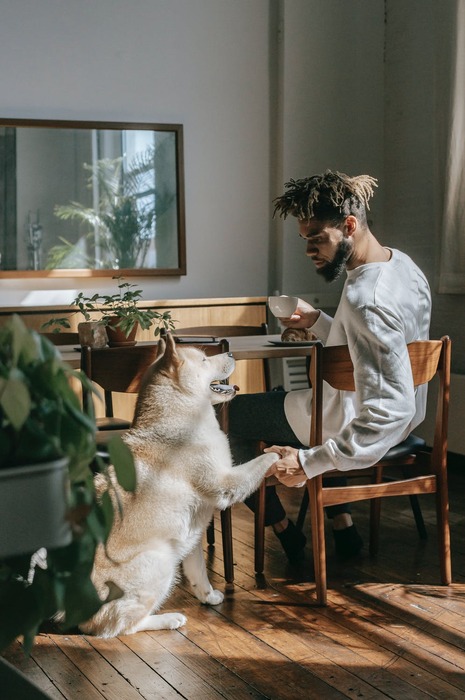
What Happens if the Puppy Does Not Graduate
Not all dogs can become service dogs. To be a good service animal a dog should be friendly, easy-going, trainable, intelligent, calm and be able to get along with other animals and people. Some puppies are anxious or prone to stress and aggression. A dog’s personality is crucial for his/her chances to become a good service dog. If the pup does not graduate, the organization is likely to sign up to adopt the puppy. If the organization is unable to take care of the pup, he/she is likely to be delivered to pre-approved people, usually close friends, to take care of him/her. In most cases, you as the dog’s raiser may be able to keep in contact with the people who will take care of the dog in the future.
Essential Things You Should Know About Raising a Dog That Will Be Trained to Become a Service Dog
Raising a pup that will become a service dog is a very responsible task. You can not get a pup and give up when difficulties occur. You should be prepared for a certain amount of damage- your furniture or favorite shoes may be chewed, you may need to clean your favorite carpet from poops, you may need to get up really early in the morning to walk the pup...etc. In general, we can say that you should be a very patient, loving person, ready to commit to dog raising. You need to be consistent in the training process and teach the pup all the essential things he/she needs to know to become a confident and well-behaved adult dog. And as you may already know- only a calm, friendly, well-mannered and confident dog can become a great service dog.



